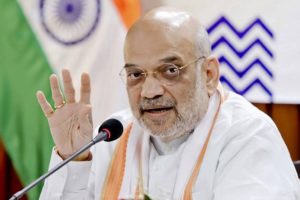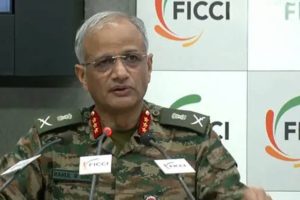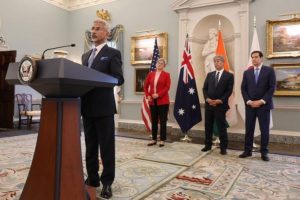Union Home Minister Amit Shah on Wednesday convened a high-level meeting with Chief Ministers, Lieutenant Governors, and top officials from multiple states and union territories amid heightened tensions following Operation Sindoor, India’s precision military strikes on terrorist camps in Pakistan and Pakistan-occupied Jammu and Kashmir (PoJK).
Chief Ministers from Jammu and Kashmir, Punjab, Rajasthan, Gujarat, Uttarakhand, Uttar Pradesh, Bihar, Sikkim, and West Bengal attended the meeting, along with Lieutenant Governors of Jammu & Kashmir and Ladakh. Also present were Chief Secretaries and Directors General of Police (DGPs) from the respective states.
The meeting comes in the backdrop of the Indian Armed Forces’ deep cross-border strikes—dubbed Operation Sindoor—which targeted and destroyed nine terrorist camps believed to be operated by groups such as Lashkar-e-Taiba, Jaish-e-Mohammed, and Hizbul Mujahideen. The military operation was conducted in response to the April 22 Pahalgam terror attack, in which 26 civilians were brutally killed.
Home Minister Shah is maintaining constant communication with Jammu and Kashmir Lieutenant Governor Manoj Sinha, and the Director General of the Border Security Force (BSF). Shah has directed the BSF to implement all necessary safety measures for people living along the border.
Lt. Governor Manoj Sinha also conducted a separate review of the situation in Jammu and Kashmir’s border districts. He instructed District Collectors to relocate residents from vulnerable villages to safer areas and ensure continuous access to food, shelter, medical aid, and transport services.
“We will ensure safety of every citizen. Jai Hind!” read a statement from the LG’s office on X.
The Union Home Ministry’s coordination with states and security agencies comes amid concern that Pakistan-based terror outfits may attempt retaliatory strikes or further disrupt peace in Kashmir and other border regions.
Earlier, Wing Commander Vyomika Singh, along with Foreign Secretary Vikram Misri and Colonel Sofiya Qureshi, addressed a media briefing detailing Operation Sindoor. Singh confirmed the destruction of nine terror camps and assured that civilian areas and infrastructure were carefully avoided.
Colonel Qureshi presented videos of the operation, showing the destruction of key camps in Muridke, Sarjal (Sialkot), Kotli, Mehmoona Joya, and others. These camps had long served as training grounds for terrorists, including Ajmal Kasab and David Headley, perpetrators of the 2008 Mumbai attacks.
Foreign Secretary Misri described the Pahalgam attack as “deliberately barbaric,” intended to terrorize families and sabotage peace efforts in Jammu and Kashmir. He emphasized that the Indian strikes were measured, proportionate, and non-escalatory, aimed solely at dismantling terror infrastructure.
India’s strike under Operation Sindoor marks its deepest military incursion inside Pakistan’s undisputed territory since 1971, and signals a significant shift in its counterterrorism posture.





